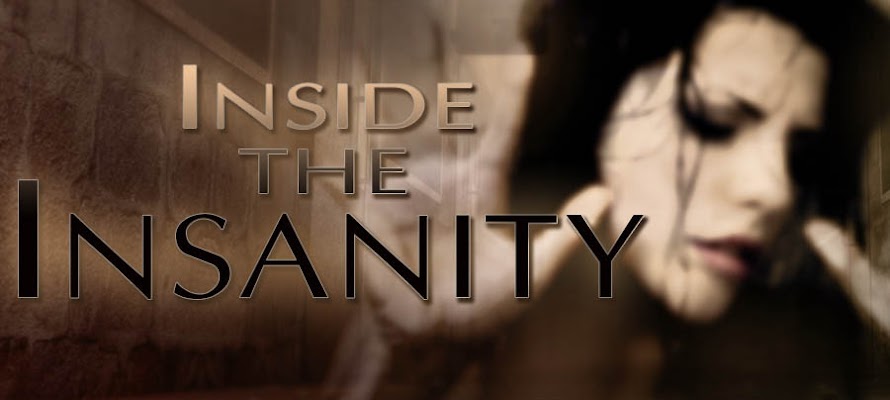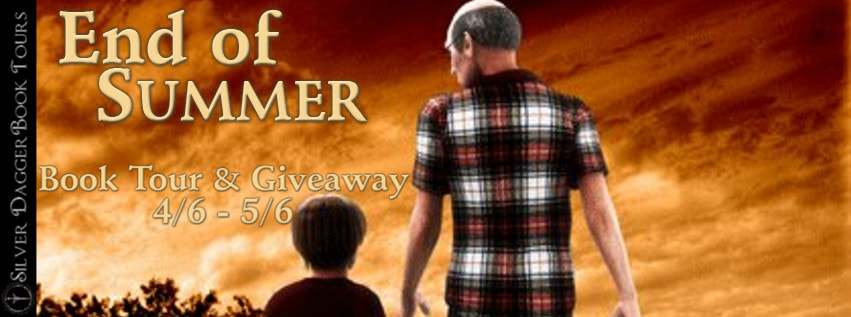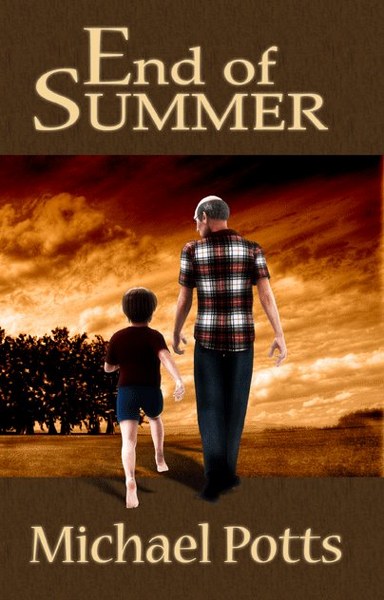End
of Summer
by
Michael Potts
Genre:
Coming of Age
A
young boy. An old man. And a journey of the heart.
A
middle aged man, Jeffrey Conley, has obsessive interests, including a
fascination with death and the process of dying and a fetish for the
sound of a woman's heartbeat. His wife, Lisa, encourages him to get
help. His psychologist diagnoses him as having Asperger's Syndrome, a
mild condition on the Autism spectrum. When his granny dies, Jeffrey
returns to Tennessee for her funeral, and then walks the same field
he walked with his granddaddy as a child. On that cold, late November
day, Jeffrey walks toward The Thicket, an outcropping of trees and
vines from the woods adjoining the field that crossed the fence and
are invading the field. In that special place he and Granddaddy would
sit and talk as Jeffrey swung on vines or sipped cola. The middle
aged Jeffrey looks back to that time, to the summer of his ninth
year, an idyllic year and a terrible year, a year of joy, a year of
loss and grief. Will Jeffrey Conley be able to discover and
understand his struggles by this journey back into his past. While
remembering Sunday dinners with relatives, hunting rabbits with his
granddaddy, or visiting the town square, Jeffrey rediscovers pain and
the worst loss of his life. Will he be able to make sense of his
life, his past, his obsessions, his faith? Or will he sink into
despair, The Thicket becoming a place of pain rather than redemption?
That is the fundamental problem of the book.
Michael
Potts has taught philosophy at Methodist University since 1994. A
native of Smyrna, Tenn., he received a B.A. in Biblical languages
from David Lipscomb University in 1983, a M.Th. from Harding School
of Theology in 1987, a M.A. in religion from Vanderbilt University in
1987, and a Ph.D. in philosophy from the University of Georgia in
1992. He is the author of Aerobics for the Mind: Practical
Exercises in Philosophy that Anybody Can Do(Tullahoma, TN: WordCrafts
Press, 2014) and has co-edited an anthology, Beyond Brain Death:
The Case Against Brain Based Criteria for Human Death, published by
Kluwer Academic Publishers in 2000. He has twenty-five articles in
refereed scholarly journals, nine book chapters, six encyclopedia
articles, nine book reviews, and ten letters, including one published
in the New England Journal of Medicine. He also has over fifty
scholarly presentations, including an invited presentation at The
Vatican in 2005. He has written three novels, End of
Summer (2011), Unpardonable Sin (2014),
and Obedience (2016), all published by WordCrafts Press.
His poetry chapbook, From Field to Thicket, won the 2006 Mary
Belle Campbell Poetry Book Award of the North Carolina Writers’
Network, and his creative nonfiction essay, “Haunted,” won the
Rose Post Creative Nonfiction Contest the same year. He has also
authored Hiding from the Reaper and Other Horror Poems. He
enjoys reading, creative writing, vegetable gardening, and canning.
Potts, his wife, Karen, and their eight cats live in Coats, N.C.
GUEST POST
Folklore
and Horror
Michael
Potts
Much,
perhaps most, of horror fiction has some relation to folklore.
Ghosts, vampires, werewolves, and zombies were all creatures of
folklore before they found their way into horror fiction. Bram Stoker
read studied legends concerning Vlad Tepes Dracula before writing his
landmark novel. Although H. P. Lovecraft’s “old ones” arose
from an attempt to create a mythology, Lovecraft was interested in
folklore, especially the folklore of his native New England.
Despite
our living in an advanced technological society, folklore still
thrives, and not only in the sense of “urban legends.” Stories of
ghosts and hauntings continue to be a part of American folklore, and
provide fuel for groups of paranormal investigators (I am a member of
one such group myself). The story of the Bell Witch of Robertson
County, Tennessee is a well-known part of Tennessee folklore. Since I
am originally from Tennessee and am familiar with the legend, it
serves as a good starting point for my discussion of folklore and
horror.
Most
of you are probably familiar with the story of the Bell Witch, but
here is a short synopsis for those who are not. John Bell, a farmer
in Robertson County, Tennessee, was haunted by a spirit during the
second decade of the nineteenth century.i
The phenomena described included strange animals that disappeared,
poltergeist phenomena, and a disembodied voice that tormented John
Bell. Supposedly the spirit poisoned him to death in 1820. There is
some speculation, fueled by the Brent Monahan’s novel, An
American Haunting: The Bell Witch Story,
ii
and the movie based on it, that John Bell’s daughter, Betsy, may
have been responsible for the haunting because her father violated
her sexually.
Now
what is most frightening about folklore stories such as the Bell
Witch as opposed to horror fiction is the question, “Is there truth
behind this legend? If so, how much? And if the accounts of the Bell
Witch are true, could something like this happen again?” Horror
fiction carries with it the paradox that we are afraid of something
that does not exist.iii
Folklore opens the possibility that we are afraid of something that
may have existed and may still exist.
Part
of what adds to the air of reality about folklore is that the events
described in the stories are said to have occurred in actual places.
I have visited the farm formerly owned by the Bell family and have
been on a tour of the “Bell Witch Cave” on the property. John
Bell and the other persons in the legend were real people, and one
can view their tombstones today. Those people interested in the
Dracula legend can visit some of the places in Rumania Vlad Tepes
Dracula once lived and roamed. Someone interested in Lovecraft’s
stories can focus on the folklore he studied and visit the places
that remain that are part of this folklore.
John
Gardner says that “In any piece of fiction, the writer’s first
job is to convince the reader that the events he recounts really
happened, or to persuade the reader that they might have happened
(given small changes in the laws of the universe)…”iv
The horror writer can make use of folklore to lend an illusion of
reality to a story. The more detailed the research into people and
places, the better—but the author must work such details into the
story in a skillful way, and omit or change details that are not
needed for plot or characterization. But the skillful use of folklore
in a horror story that results in strong verisimilitude can draw the
reader into “the vivid and continuous dream”v
of a story in an effective way. It can move a reader to ask, “Could
something like this really happen? Did something like this really
happen. Maybe it’s happening now.”
iThe
best sources for the Bell Witch legend are M. V. Ingram, An
Authenticated History of the
Famous
Bell Witch
(Nashville: Rare Book Reprints, 1961 [1894]) and Charles Bailey
Bell, A
Mysterious
Spirit: The Bell Witch of Tennessee
(Nashville: Charles Elder, Bookseller, 1972
[1934]).
iiBrent
Monahan, An
American Haunting: The Bell Witch,
2nd
ed. (New York: St. Martins
Griffin,
2006).
iiiNoël
Carroll, The
Philosophy of Horror, or Paradoxes of the Heart
(New York and London:
Routledge,
1990), 59.
ivJohn
Gardner, The
Art of Fiction
(New York: Vintage Books, 1983), 22.
Follow
the tour HERE
for exclusive excerpts, guest posts and a giveaway!








No comments:
Post a Comment